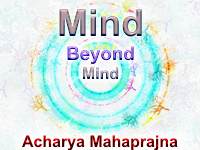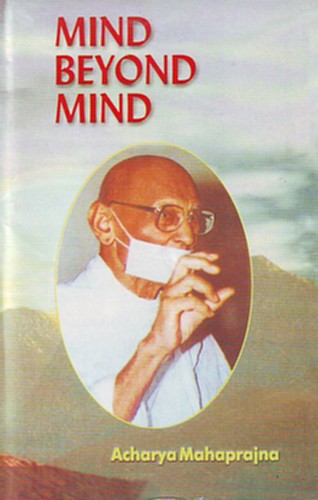
We are discussing the process of self-transformation. Let us remember that every one wants change in his life. This desire for change is a universal desire. It is immaterial whether we want to change deliberately or are forced to change. Unfortunately, it is very difficult to change human nature. By our very nature we are conservative. Even when we know that it is desirable to change some habit or habits, we fail to do so. Why do we fail? It is a very important question and can be explained from the point of view of Sadhana.
Let us first take the purpose with which we take to Sadhana. Why do we meditate? Why do we pursue the breath with the mind? Why do we try to concentrate the mind? Why do we try to arrive at a state of thoughtlessness?
We have two bodies, the gross body, and the subtle body. Similarly consciousness has two planes, the mental plane, and the subtle plane of Adhyavsaya (the unconscious). We have only one mind, but there are innumerable subsections of Adhyavsaya. They are very deep seated. The discursive mind frames opinions and judgments. There is nothing wrong in them. But we are very often unable to translate these opinions and judgments into practice. There is something behind or below the mind, which creates difficulties for us. Suppose we have taken a decision not to drink tea any more. But as soon as the time for breakfast arrives, we begin to feel a strong craving for tea. We feel this craving every day at what we call teatime. Wherefrom does this craving arise? Our decision not to take tea is rendered ineffective by this craving.
Let me narrate a story to illustrate the force of craving. A certain King once fell ill. His physician advised him not to eat mangoes. If he ate mangoes, he would invite death. One day the king went to his garden and began to stroll. He came to a mango tree. He desired to sit in its shade. His minister in waiting warned him that his physician had told him not even to sit under a mango tree. He would die, even if he took a mango fruit in his palm. The king, however, could not resist the temptation to sit in the shade of the tree and did so. He now began to smell the fragrance of the mango fruits. It was very appetising. Perchance a gust of wind shook the tree and a fruit fell in the lap of the king. He plucked and smelt it. Now it was impossible for him to resist the temptation to eat the fruit. He put it to his lips and began to suck its juice. The minister in waiting caught his arm and dissuaded him from sucking the fruit, but the king pushed him aside and sucked the juice. After a few days he had another attack of the disease and died.
How is it that we fail to carry out our decisions? Our decisions are generally made on the grosser strata of consciousness. They are decisions on the plane of the mind. The cause, which renders them ineffective, lies not in the mind but in Adhyavsaya. It is wrong to search it in the mind or gross consciousness. It lies in the Karma Sarira or the Vasan Sarira. Adhyavsaya is the source of all the unfulfilled desires. It lies in the subconscious plane. We should not try to blow out the candle like the ignorant villager.
In the practice of the regulation of respiration we employ the mind to follow the breath, in and out. The purpose is to open the door of the unconscious, to erase the wall dividing the gross body from the subtle body in order that we may enter into the subtle mind from the gross mind. Sadhana is an attempt to open the door of entry into the subtle mind. Its success lies, in making the subconscious or in facing the contents of the subtle mind.
Concentration of the mind is the chief instrument of removing the partition wall between the gross body and the gross mind on the one hand and the subtle body and subtle mind on the other hand. The more the concentration, the more active will the subtle mind become. Ultimately the gross mind will cease to function and the subtle mind will begin to disclose itself.
The practice of regulating respiration produces a state of thoughtlessness. Breathing, when it becomes regulated, will produce a force, which pushes open the door of the unconscious mind. We generally believe that gross and corpulent things are more powerful than the subtle and tiny things. The reverse is, however, true. The tiny atom has been found fantastically powerful. We should, therefore, attempt to enter into the subtle body and the subtle mind, leaving behind the gross body and the gross mind. That is the purpose of meditation exercises.
Let us begin with breathing which is a gross entity. Let us take it as a support. As the next step, let us carry the mind inside following the currents of breath. This means planting new Samskaras in the mind. The mind, thus trained, will be able to push open the door of the subtle world inside us. Having entered that world, we will be able to realize that human nature can be changed and all its evils removed.
 Acharya Mahaprajna
Acharya Mahaprajna

